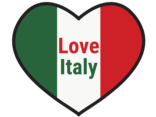
Accessing healthcare services as a tourist in Italy involves understanding the country’s healthcare system, knowing the necessary insurance requirements, and being aware of the available public and private healthcare facilities. Italy has a well-established healthcare system, and tourists may access emergency services for free. However, for non-emergency services, having travel insurance is crucial. This guide will provide detailed information on how to access and navigate healthcare services in Italy as a tourist.
Navigating Healthcare Services as a Tourist in Italy: A Comprehensive Guide
Italy, renowned for its rich history, stunning architecture, and delectable cuisine, is a popular destination for tourists worldwide. However, navigating healthcare services in a foreign country can be a daunting task, especially when language barriers and unfamiliar systems come into play. This article aims to provide a comprehensive guide for tourists seeking to access healthcare services in Italy.
Firstly, it’s essential to understand that Italy has a national health service known as Servizio Sanitario Nazionale (SSN), which provides free or low-cost healthcare to its residents. However, as a tourist, you are not automatically eligible for the SSN. Therefore, it’s crucial to have travel insurance that covers medical expenses before embarking on your journey. This insurance will typically cover emergency medical services, hospital stays, and sometimes even medical evacuation if necessary.
In case of a medical emergency, dial 118, the universal emergency number for medical services in Italy. The operator will dispatch an ambulance if necessary. It’s important to note that emergency services in Italy are free of charge, even for tourists. However, non-emergency services may incur a fee, which is where your travel insurance comes into play.
For non-emergency medical needs, you can visit a local pharmacy, known as a “Farmacia.” Italian pharmacies are well-stocked and staffed with knowledgeable pharmacists who can provide advice and over-the-counter medications for minor ailments. Look for a sign with a green cross, which is the universal symbol for pharmacies in Italy.
If you need to see a doctor, you have a couple of options. You can visit a public hospital, where you will likely be charged a fee for services rendered. Alternatively, you can visit a private clinic, which may offer shorter wait times and English-speaking staff. However, private clinics are generally more expensive than public hospitals. It’s advisable to contact your travel insurance provider to understand which services they cover and whether they have partnerships with any local healthcare providers.
If you’re an EU citizen, you’re in luck. The European Health Insurance Card (EHIC) entitles you to the same treatment at the same cost as an Italian citizen. This means that if the treatment is free for Italian citizens, it will also be free for you. However, the EHIC does not cover private healthcare or costs such as a return flight to your home country or lost/stolen property.
In conclusion, accessing healthcare services as a tourist in Italy requires some preparation. Ensure you have comprehensive travel insurance, know the emergency number, and understand the difference between public and private healthcare services. If you’re an EU citizen, don’t forget to bring your EHIC. With these tips in mind, you can focus on enjoying the beauty and culture of Italy, knowing that you’re prepared should you need medical assistance.
Conclusion
In conclusion, accessing healthcare services as a tourist in Italy involves obtaining a European Health Insurance Card (EHIC) for EU citizens, which covers necessary treatments. Non-EU tourists should purchase travel insurance that covers health services. In emergencies, anyone can access treatment in Italy, but non-emergency services may require payment. Pharmacies provide over-the-counter medication and advice. It’s advisable to understand the Italian healthcare system and relevant procedures before traveling.
Secure Your Dream Italian Experience Before It’s Gone!
Planning a trip to Italy? Don’t let sold-out tours or overcrowded attractions spoil your adventure. Unmissable experiences like exploring the Colosseum, gliding through Venice on a gondola, or marvelling at the Sistine Chapel often book up fast—especially during peak travel seasons.

Booking in advance guarantees your place and ensures you can fully immerse yourself in the rich culture and breathtaking scenery without stress or disappointment. You’ll also free up time to explore Italy's hidden gems and savour those authentic moments that make your trip truly special.
Make the most of your journey—start planning today and secure those must-do experiences before they’re gone!
